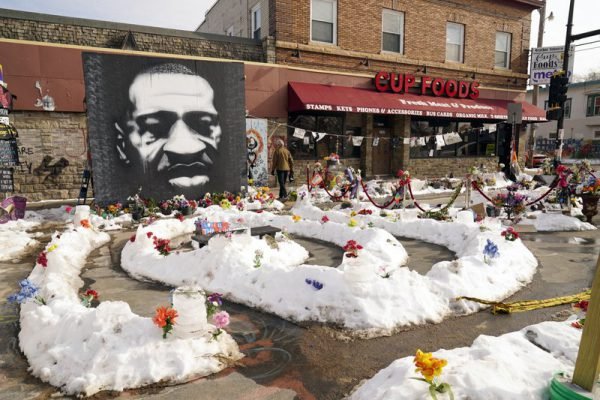The city of Minneapolis will pay the estate of George Floyd $27 million after the Minneapolis city council unanimously voted to settle a lawsuit with his family after his death in police custody last year. This settlement includes a sum of $500,000 for the south Minneapolis neighborhood, which includes the 38th and Chicago intersection. This area has been blocked by barricades since Floyd’s death in May, with a massive metal sculpture and a host of murals in his remembrance and honor.
The city council voted 13-0 the approve this settlement with Floyd’s family.
Philonise Floyd, George Floyd’s brother, thanked the council for their support. “I thank the state of Minnesota for getting this settlement taken care of,” he said. “But even though my brother is not here, he’s here with me in my heart. Because if I could get him back, I would give all of this back.
“I know that he’s with us, and he’s standing up, right now, knowing that we have the opportunity to be able to fund low-income, African American communities.”
George Floyd passed away in police custody when Derek Chauvin, a former Minneapolis police officer, kneeled on Floyd’s neck for more than nine minutes. The former officer is standing trial on murder and manslaughter counts.
“Mr. Floyd died because the weight of the entire Minneapolis Police Department was on his neck,” Attorney Ben Crump, who represents the family, said when the suit was filed.
George Floyd’s sister Bridgett Floyd said in a statement, “While we will never get our beloved George back, we will continue to work tirelessly to make this world a better, and safer, place for all.”
This certainly is a huge step to reduce systemic inequality and racial discrimination across the world. Do you agree?
0